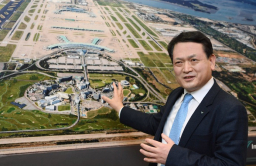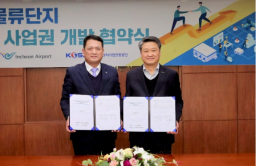-
KOSPI 2577.27 -2.21 -0.09%
-
KOSDAQ 722.52 -7.07 -0.97%
-
KOSPI200 341.49 +0.02 +0.01%
-
USD/KRW 1396 -2.00 0.14%
Korea’s Incheon Airport Corp. signs $3 billion deal to run Manila airport
Airlines
Korea’s Incheon Airport Corp. signs $3 billion deal to run Manila airport
With the latest deal clinched with three Filipino partners, IIAC has established itself as a global airport operator
By
Mar 19, 2024 (Gmt+09:00)
2
Min read
News+
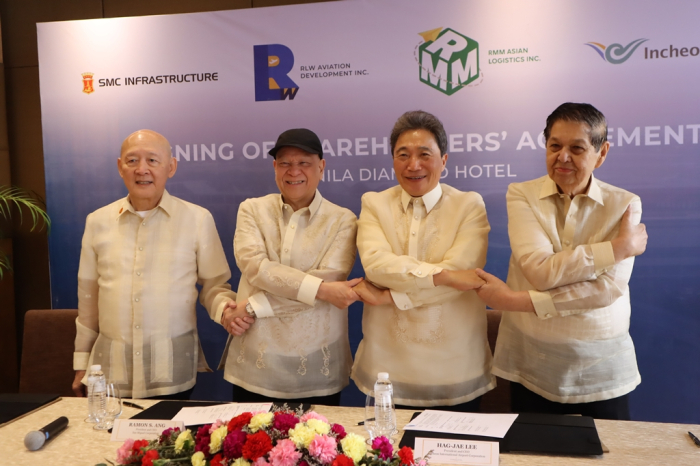
South Korea's state-run Incheon International Airport Corp. (IIAC) has signed a $3 billion deal to operate Manila's Ninoy Aquino International Airport (NAIA), the Philippines’ main gateway, over the next 25 years.
The Korean airport operator and its Filipino consortium partners – construction conglomerate San Miguel Holdings Corp. and financial investors RLW Aviation Development Inc. and RMM Asian Logistics Inc. – on Monday inked the agreement with the Philippine government.
The signing ceremony, held at the Malacañan Palace, was attended by Bongbong Marcos, president of the Philippines, IIAC Chief Executive Lee Hag-jae, San Miguel Chairman Ramon Ang, RLW CEO Robert Wong, RMM CEO Raymond Moreno and Jaime Bautista, minister of the Philippines’ Department of Transportation.
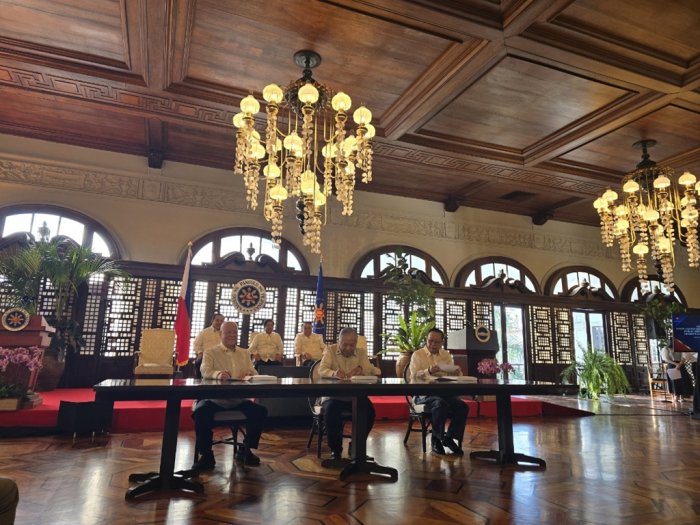
Incheon International will have a 10% stake in the project. San Miguel will hold a 33% stake, while RLW and RMM will own 30% and 27%, respectively.
Under the public-private partnership project, with an estimated cost of 4 trillion won ($3 billion), Incheon International will be responsible for the overall operations and maintenance of the Manila airport.
The project also includes overseeing the refurbishment of runways and passenger terminals’ airside facilities.
The IIAC-led consortium, which won the bid last month, has launched a special-purpose company, New NAIA Infra Corp. (NNIC), for the project.
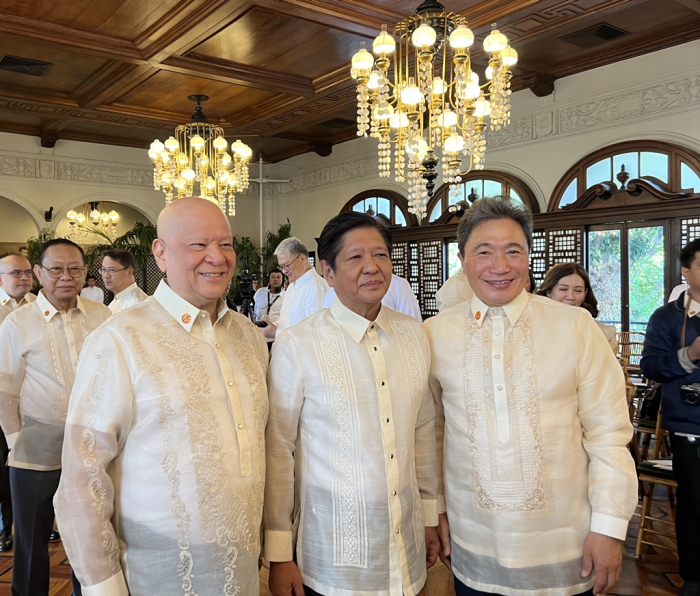
TO MANAGE MANILA AIRPORT THROUGH 2049
Incheon International said it will begin managing the Manila airport from September for 25 years through 2049.
The Korean company said it expects cumulative revenue of 36.9 trillion won, or $27.6 billion, from the project over the period – its largest-ever deal since the inauguration of the airport operator in 2001.
IIAC aims to eventually raise Ninoy Aquino International Airport’s annual passenger handling capacity to 62 million from the current 33 million.
Before the pandemic, the Manila airport handled 48 million passengers and 720,000 tons of cargo as of 2019.
IIAC said it will separately work to win new operational consulting contracts with the Manila airport.
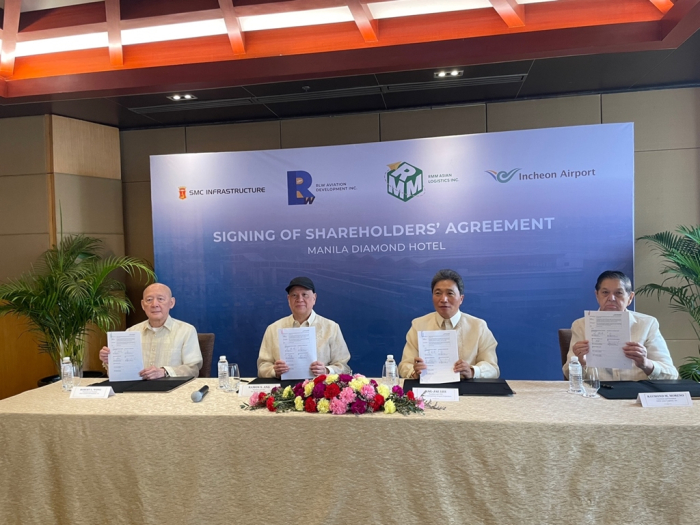
The Korean company’s successful bid follows its exploits in the public-private partnership project of Indonesia’s Batam Hang Nadim Airport in 2021.
With the latest achievement, the state-run company said it is establishing itself as a global airport operator, expanding its overseas portfolio beyond the current projects, including the operation and maintenance of Kuwait Airport Terminal 4 and the Airport Operational Advisory for Solidarity Transport Hub in Poland.
“Winning the Ninoy Aquino Airport Development and Operation project consolidates our position as a global airport operator in Southeast Asia,” said IIAC CEO Lee. “We will expand our overseas business worldwide, based on the operational know-how accumulated at Incheon Airport, Korea’s main gateway.”
IIAC has clinched 34 overseas projects since its launch.
Write to Jun-Wan Kang at jeffkang@hankyung.com
In-Soo Nam edited this article.
More To Read
-
Mar 07, 2024 (Gmt+09:00)
-
Oct 04, 2023 (Gmt+09:00)
-
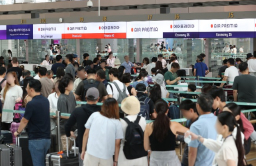 Travel & LeisureS.Korea's No. 1 flight route in 2023 is Incheon-Osaka
Travel & LeisureS.Korea's No. 1 flight route in 2023 is Incheon-OsakaAug 07, 2023 (Gmt+09:00)
-
Mar 03, 2023 (Gmt+09:00)
-
Nov 24, 2022 (Gmt+09:00)
-
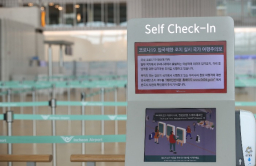 Prolonged pandemicIncheon Int'l Airport raises $300 mn in first global bond sale
Prolonged pandemicIncheon Int'l Airport raises $300 mn in first global bond saleApr 27, 2021 (Gmt+09:00)




